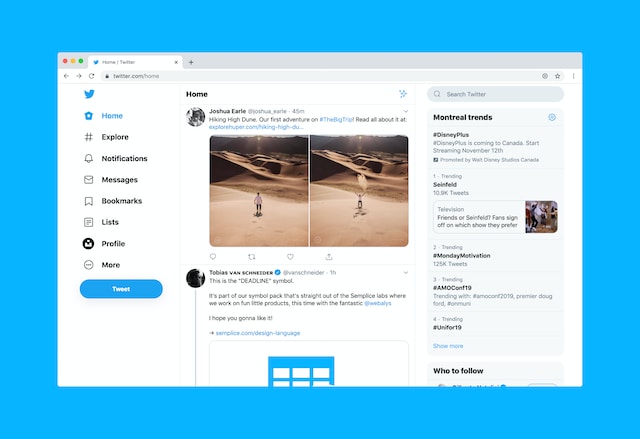Naming is an essential aspect of branding and marketing, as it can have a significant impact on a business’s success.
Choosing the right name requires careful consideration of various factors, such as the target audience, industry, and cultural context.
However, many businesses make common naming mistakes that can hinder their growth and credibility.
In this article, we’ll explore common naming mistakes to avoid and provide best practices for choosing a name that resonates with your target audience.
Why Is It Important To Avoid Naming Mistakes?
Avoiding naming mistakes is important for several reasons. First and foremost, names are a crucial part of how we communicate with one another.
When we use someone’s name, we acknowledge their individual identity and show them respect. Using the wrong name or misspelling someone’s name can be seen as disrespectful or careless and can harm relationships and communication.
In addition, using the wrong name can also have practical consequences. For example, if you are trying to contact someone for work or for an important matter, using the wrong name could cause confusion and delay.
Similarly, misspelling a name could make it difficult for others to find information about a person, such as on a social media profile or in an online directory.
Moreover, precision and accuracy in naming is especially important in certain contexts, such as academic writing or legal documents.
Failing to use the correct names for people, places, or things could compromise the clarity and accuracy of a text and may even render it unusable.
Finally, using the correct names for people, places, and things is simply a matter of good manners and attention to detail. Taking the time to learn and use the correct names shows that you care about others and are committed to clear communication.
Readers, check out our business name guide – How To Choose A Business Name That Stands Out
Top Naming Mistakes To Avoid
Naming a business, product, or brand is a crucial step in establishing an identity and creating a memorable impression in the minds of your target audience.
A well-chosen name can convey your brand’s personality and values, attract customers and distinguish your company from competitors.
On the other hand, a poorly chosen name can confuse customers, harm your reputation, and limit your brand’s potential.
1. Choosing A Name That’s Too Generic
Choosing a generic name for your business or product can make it hard for customers to find you online or distinguish you from competitors.
Names that are too general or descriptive may not stand out in search engine results and may not evoke any emotional connection or personality traits with your brand. Instead, choose a unique and memorable name that reflects your brand’s identity and values.
2. Using A Name That’s Hard to Spell Or Pronounce
If your customers can’t spell or pronounce your brand name, they’re less likely to remember it or tell others about it. Avoid using complex or unusual spellings or long names that are difficult to pronounce.
Make sure your brand name is easy to spell and pronounce, and consider how it will sound in conversation and advertising.
3. Picking A Name That Limits Your Brand’s Potential:
If your brand name is too specific or narrow, it may limit your business’s growth and future opportunities.
For example, if you name your company “XYZ Coffee Shop,” you may find it difficult to expand beyond coffee and into other food and beverage categories. Instead, choose a name that allows for future expansion and doesn’t limit your business’s potential.
4. Not Researching The Meaning And Cultural Context Of A Name
When choosing a name, it’s essential to research its meaning and cultural context in different languages and cultures.
A name that may seem innocent and harmless in one language or culture may have negative connotations or be offensive in another. Avoid choosing a name that could be culturally insensitive or offensive to your target audience.
5. Copying Another Brand’s Name Or Trademark
Copying another brand’s name or trademark is unethical and can result in legal repercussions and damage your brand’s reputation.
It’s crucial to do a thorough search for existing trademarks and ensure that your brand name is original and not too similar to another brand’s name or logo.
6. Choosing A Name That’s Too Long Or Complicated
A name that’s too long or complicated can be hard to remember and use in advertising and branding. Keep your brand name short, simple, and easy to remember.
Avoid using hyphens, abbreviations, or numbers that can confuse customers or make your brand name look unprofessional.
7. Being Too Trendy
While a trendy name may seem like a good idea at the moment, it can quickly become outdated and irrelevant.
Avoid using trendy phrases, buzzwords, or slang that may lose their relevance over time. Instead, choose a timeless and classic name that can withstand the test of time.
8. Not Testing the Name With Your Target Audience
Before finalizing your brand name, it’s essential to test it with your target audience to gauge their reactions and get feedback. Conduct market research, surveys, or focus groups to see how your name resonates with different groups and adjust accordingly.
9. Focusing Too Much On SEO
While choosing a name that’s easy to find on search engines is important, focusing too much on SEO can lead to a generic or awkward name. Instead, prioritize a name that reflects your brand’s identity and values, and optimize it for SEO later.
10. Choosing A Name That’s Too Similar To A Competitor
Avoid choosing a name that’s too similar to a competitor’s name, as it can confuse customers and harm your brand’s reputation. It’s important to stand out in the market and differentiate your brand from competitors with a unique name.
Tips For Choosing The Right Name
Tip 1: Research and Brainstorm
Before choosing a name, it’s important to conduct thorough research and brainstorming. Start by researching your industry and competitors’ names to see what works and what doesn’t.
Look for names that are unique, memorable, and easy to pronounce. Brainstorm a list of potential names, and then narrow them down to your top choices.
Tip 2: Consider Your Target Audience
When choosing a name, it’s important to consider your target audience. Think about what appeals to them, what values they hold, and what they’re looking for in a brand.
Your name should reflect your target audience’s interests and preferences while also being relevant to your industry.
Tip 3: Keep it Simple and Memorable
The best names are simple and memorable. Avoid using long or complicated names that are hard to spell or pronounce. Instead, choose a name that is easy to remember and recognize. A simple name is more likely to be remembered, shared, and recognized by your target audience.
Tip 4: Test and Get Feedback
Before finalizing your name, it’s important to test it with your target audience and get feedback. Conduct surveys or focus groups to see how people respond to your name.
Consider their feedback and make any necessary changes to ensure that your name resonates with your audience.
If you want to know more tips so, make sure to read the Tips To Choose The Right Business Name.
Conclusion
Naming your business can be daunting, but it’s essential to building a strong brand identity. By avoiding common naming mistakes and following best practices, you can create a name that reflects your brand’s values, resonates with your target audience, and stands out in a crowded market.
Remember to conduct thorough research, consider your audience, keep it simple, and test your name to ensure that it’s effective and memorable.
Related Articles
Was this article helpful?











